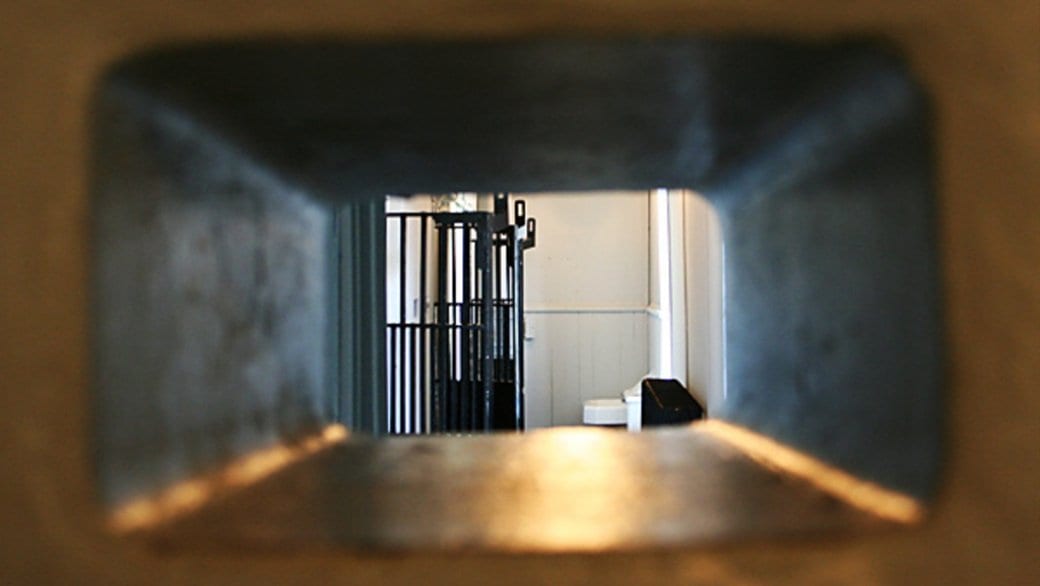Canada’s federal jails have told staff to stop sorting trans people by their genitalia, after a trans woman raised the issue with Prime Minister Justin Trudeau.
“I did 36 years in the military; I’m a pensioner. I get to speak out now,” Teresa Windsor tells Xtra.
On Jan 12, 2017, Windsor took part in a Kingston, Ontario, question-and-answer session during Trudeau’s tour of the province. She asked Trudeau about “what I consider torture of trans inmates” by housing them in jails by genders they don’t identify with.
“Will you do your best to make sure that trans women are put in a prison that’s more appropriate?” she asked.
The prime minister said yes.
“I’ll admit, I consider myself to be a fairly strong advocate for LGBTQ2 issues, and fairly aware of all the different pressures, and this isn’t one that I had ever thought of,” Trudeau said.
“I will make sure we look at it and we address it and we do right in recognizing that trans rights are human rights and we need to make sure we are defending everyone’s dignity and rights in every way we can.”
Windsor suspects her “nice, red Liberal shirt” drew Trudeau’s eye. Officials screened the audience’s seating arrangements, but not their questions, she says.
Since at least 1999, Correctional Service Canada (CSC) has sorted trans inmates who haven’t transitioned based on their genitalia.
Until Jan 9, 2017, CSC’s “gender dysphoria” policy restricted gender-confirmation surgery to people who have spent “12 continuous months in an identity-congruent gender role” — but said only months spent prior to their incarceration would count.
After review, CSC updated its policy to allow jail time to count in those 12 months — but continued sorting “pre-operative” trans and intersex people by their genitalia for their jail placement.
Three days later, Windsor took Trudeau to task about that policy, which she describes as “reprehensible.” The next day, CSC abruptly changed course.
“CSC is reviewing trans inmate’s placement requests on a case-by-case basis,” wrote a spokesperson for Public Safety Minister Ralph Goodale, calling the Jan 9 update “an interim policy.”
“CSC is establishing a working group and will be consulting with stakeholders on an updated policy that will, among other things, be compliant with Bill C-16,” Scott Bardsley said in an email.
Windsor, who hosts the community radio show Gender Talk Kingston, says she’s thrilled about the change. “I’m hoping that my word to Justin Trudeau wasn’t the only spark to get things changed. But it definitely had an effect,” she says.
Windsor found it “extremely disturbing” that the jail ombudsman has seen a rising number of trans people choosing voluntary segregation, feeling unsafe in the general prison population.
“It’s almost like Corrections Canada has made being transgender a crime within itself,” she says, adding that sorting people by genitalia goes against the spirit of Bill C-16, which would encode gender identity and expression in Canada’s human rights laws. “Trans women are women, even in prison.”
Meanwhile, Xtra has learned that the Canadian Human Rights Commission (CHRC) is suggesting a tribunal investigation into the former policy.
In December 2015, the West Coast Prison Justice Society filed a human-rights complaint alleging the policy was leading to rapes of transgender inmates. The commission previously referred a similar case to its tribunal, which ruled in 2001 that the policy was discriminatory.
Jennifer Metcalfe, who is overseeing the litigation, says the complaint investigator finished his report the week of Jan 9, recommending it go before a tribunal. That means both the group and the government have a few months to submit responses. If they don’t reach an agreement, the government could face fines and orders to change its policies.
“I think it’s pretty ridiculous to say somebody living their life in prison is not living their real life,” says Metcalfe, who has handled individual complaints for more than a decade.
CSC houses all adult Canadians serving sentences of two years or more, representing about 40 percent of the almost 40,000 adult prisoners in Canada. The rest are in provincial and territorial jails, including people awaiting a trial or serving community sentences. Ontario and British Columbia jails have sorted inmates based on their self-identified gender since 2015.

 Why you can trust Xtra
Why you can trust Xtra


